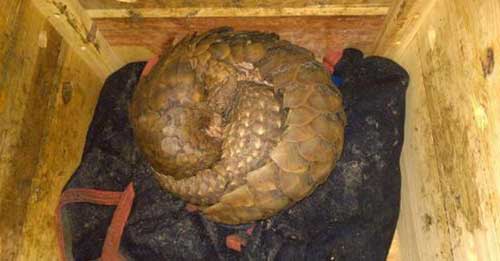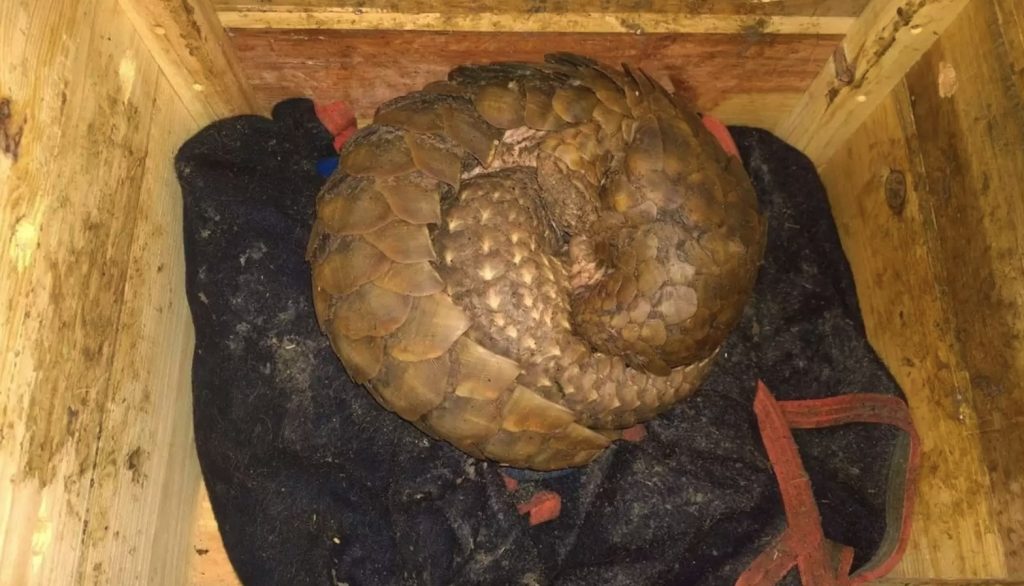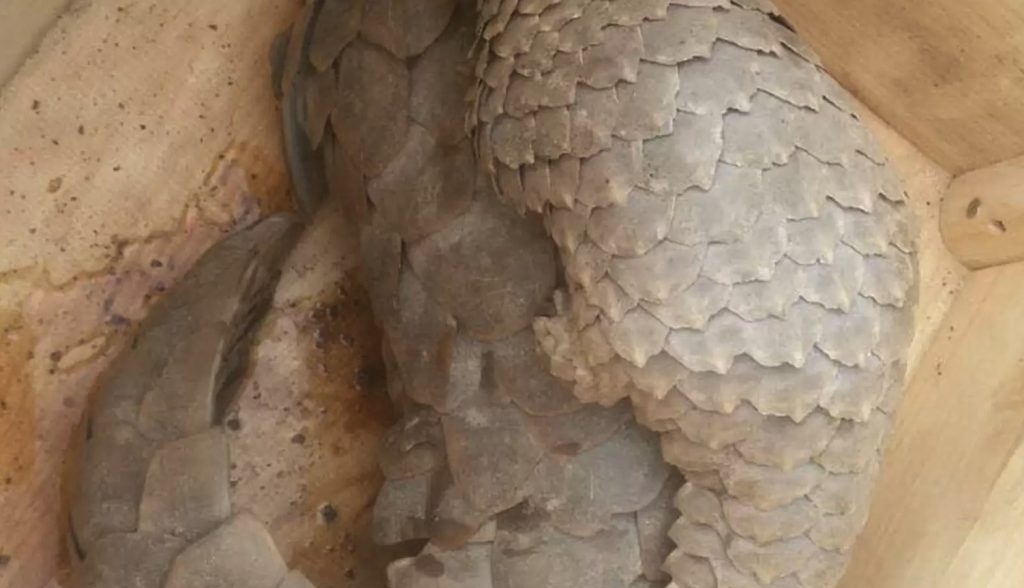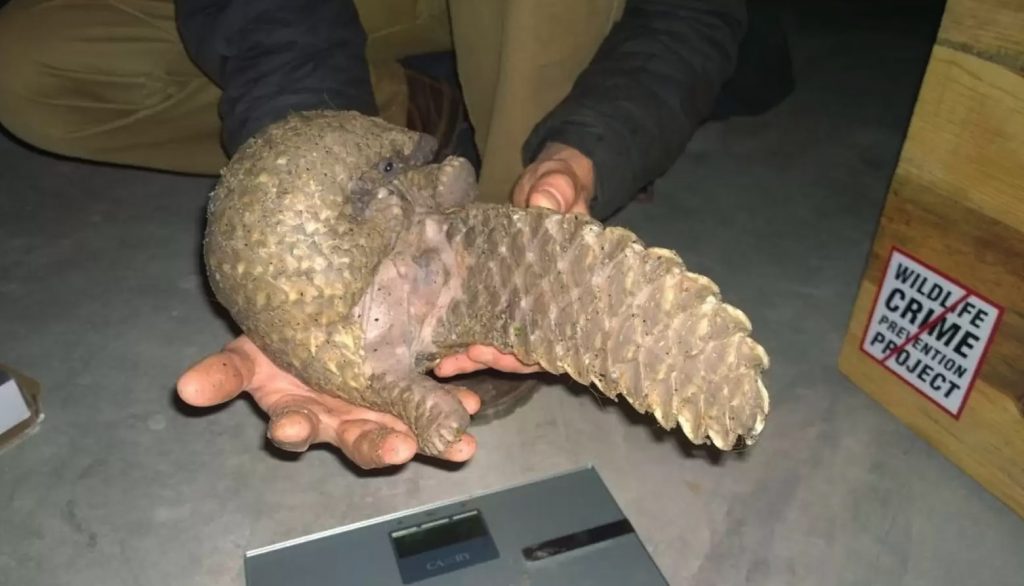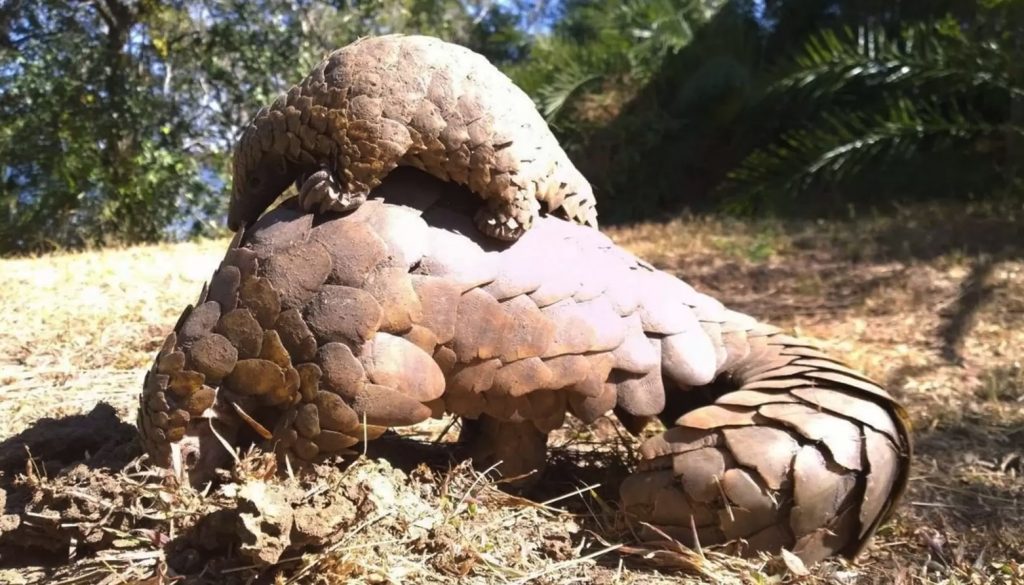Most people have never heard of a pangolin. But, with the arrest of three people in Zambia for reportedly catching and trying to sell a mom and her young pangolin, the creatures are receiving more attention than ever before, which is a good thing.
Pangolins are fascinating since they are scale-covered animals. According to the David Shepherd Wildlife Fund (DSWF), they consume insects and are secretive and nocturnal, often rolling up into a ball when attacked.
Zambian authorities discovered the terrified animals in a wooden box after a week-long search. It was hard to tell at first, but they soon realized the pair was clinging to one another. Based on the poor condition of the mother and baby, it is believed they have been in captivity for more than two weeks, said Vicky Flynn of the David Shepherd Wildlife Foundation (DSWF).
Congratulations to the Department of National Parks and Wildlife’s Investigations and Intelligence Unit for apprehending three suspects with two live pangolins, WCP – Wildlife Crime Prevention said on Facebook. In Zambia, there is rising concern over pangolin hunting and trafficking. WCPP collaborates closely with DNPW to combat pangolin hunting and illicit trafficking. They will keep everyone updated.
They told their social media followers a few days later that the pangolin duo was doing well. Both pangolins – mother and baby – are doing well so far. Their health is improving on a daily basis, and they are gaining weight. Well done, Department of National Parks and Wildlife, WCP said in a fresh post that included further photographs of the remarkable animals.
The GRI Wildlife Crime Prevention Project was tasked with recuperating the animals, which had been badly debilitated by their confinement. After they have completely healed, they want to release them into Zambia’s greatest national park, Kafue.
They seem to be eating, which is a good indication, GRI Wildlife Vet Program’s Annekim Geerdes said in a statement. They will be given an opportunity to relax and eat healthily again. Geerdes apparently takes the nocturnal pangolins on a nightly stroll, during which they feast on insects.
According to Flynn of the DSWF, pangolins are the most heavily-trafficked wild animal in the world because of a rising demand for their flesh and scales in specific Asian markets.
In 2011 and 2013, up to 233,980 were murdered as the pangolin trade reached pandemic proportions. Moreover, an estimated one million pangolins were illegally sold in the previous decade, and demand is only increasing.
About the same time that this mother and baby pangolin were found, two persons were detained in Medan, North Sumatra, for attempting to transport eight highly endangered pangolins. One of the individuals was allegedly a member of the Indonesian military.
According to Tulus Hutahuruk, chief of law enforcement at the Sumatra Environment and Forestry Administration, one pangolin costs about $375 in North Sumatra, according to the Jakarta Globe.
Fortunately, this mom and child were spared a terrible end. With the advent of social media and groups like WCP – Wildlife Crime Prevention, awareness is being drawn to creatures in peril, such as the pangolin, which most people would never have heard of if not for the captivating photographs of the curiously scaled rodents appearing in their newsfeed.


